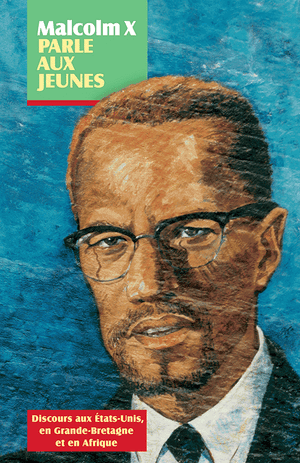
Malcolm X
Malcolm X (1925–1965). As he began to break from the Nation of Islam in the early 1960s, Malcolm X became the authentic voice of the forces of the coming American revolution. He used his platform in Black neighborhoods across the country to campaign against every manifestation of anti-Black racism. He was...
Malcolm X (1925–1965). As he began to break from the Nation of Islam in the early 1960s, Malcolm X became the authentic voice of the forces of the coming American revolution. He used his platform in Black neighborhoods across the country to campaign against every manifestation of anti-Black racism. He was outspoken in condemning the pillage of the peoples of Africa, Asia, and Latin America for the profit of imperialist regimes.
In June 1964, Malcolm and his collaborators initiated the Organization of Afro-American Unity (OAAU), open to all Blacks committed to Malcolm’s revolutionary social and political trajectory.
During the last year of his life, Malcolm X spoke out more and more directly about the capitalist roots of racism, of exploitation, and of imperialist oppression. He was an uncompromising opponent of the Democratic and Republican parties—the twin parties of racism and capitalist exploitation.
In December 1964 Malcolm, who had demonstratively welcomed Fidel Castro to Harlem four years earlier, invited Cuban revolutionary leader Ernesto Che Guevara to speak before an OAAU meeting in Harlem. At the last minute Guevara was unable to attend but sent "the warm salutations of the Cuban people" to the meeting in a message that Malcolm insisted on reading himself from the platform.
On February 21, 1965, Malcolm X was assassinated as he began speaking in Harlem. One of the killers, the gunman arrested at the scene, said from the outset that the two men convicted along with him were not guilty. In 1977 he signed affidavits stating that four other Nation supporters were the ones involved with him, but the case has never been reopened.
Collections of Malcolm X's speeches and writings include:
February 1965: The Final Speeches (1992)
Malcolm X Talks To Young People (1991)
Malcolm X: The Last Speeches (1989)
By Any Means Necessary (1970)
Malcolm X on Afro-American History (1967)
Malcolm X Speaks (1965)





